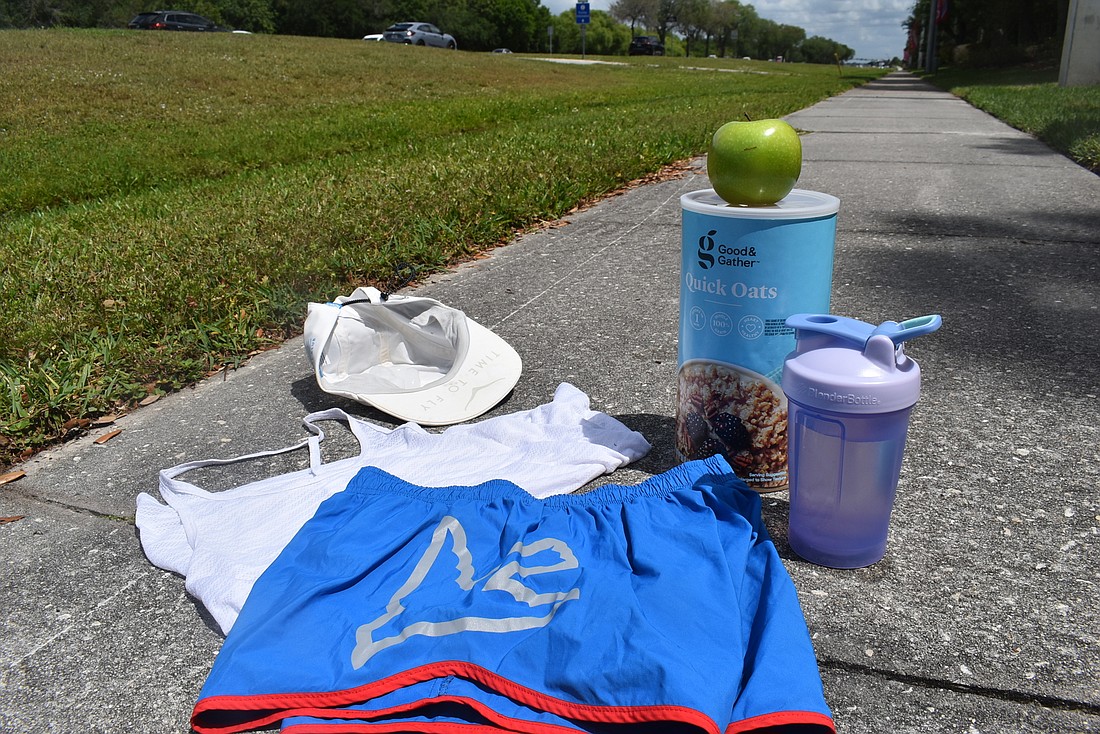- April 16, 2024
-
-
Loading

Loading

Florida is known worldwide for its gorgeous weather — for about half of the year.
Those who remain after the snowbirds fly north know well that the state turns into a swamp come April and May.
Changes in weather also mean changes in the way people should exercise. Extra precautions are necessary to make sure the body is properly fueled and protected from the sun and heat, which can cause dehydration or heat stroke.
This is what you should think about before exercising in Florida summer:
Exercising in the hot, humid weather Florida provides in the summer can make it easier for people exercising to get dehydrated or a heat stroke, especially in the middle of the day.
The best way to exercise safely during the summer is working out in the cooler hours of morning or evening, or exercising indoors, according to University of California-Davis Health. This is especially important for those who are not accustomed to exercising in the heat.
Exercisers can lose more than a quart of sweat during an hourlong, moderate to heavy workout, according to Harvard Medical School. It’s important to drink at least two to three cups of water per hour while exercising, or more to combat profuse sweating. Don’t forget to drink water after the workout, too.
Waiting until the workout to start drinking water, however, isn’t enough to avoid dehydration. The American College of Sports Medicine's hydration guidelines recommend drinking three to five 8-ounce cups of water over two hours prior to running, including one or two cups within 15 minutes of the workout start time.
Avoid consuming caffeine or alcohol before a workout because these substances cause dehydration, according to UC Davis Health. Sports drinks are unnecessary unless rapid dehydration is occurring within a workout, according to Harvard Medical School.
One easy way to ensure hydration is monitoring urine. The urine of a hydrated person is usually light yellow or colorless, according to Cleveland Clinic. Dark yellow or amber urine indicates dehydration.
Last but not least: If you feel thirsty, drink water. Sometimes it’s as simple as that.
If possible, exercising on an empty stomach should be avoided. Mayo Clinic recommends eating a small meal or snack one to three hours before exercising or a large meal three to four hours beforehand. Eating too much can make your workout feel sluggish. Carbohydrate-rich foods, such as fruit and whole grains, are good sources of energy.
For those who prefer to exercise as soon as they wake up, it’s crucial to eat a high-carb dinner the night before. It can also be helpful to eat a light snack, such as a half-bagel or even an energy gel, before starting the workout, according to the Livestrong Foundation. People who exercise before eating breakfast should eat a meal with protein and carbs within an hour of finishing the workout.
There are countless options when it comes to athletic clothes, but what is optimal for exercising in the heat? UC Davis Health recommends wearing loose clothing made of cotton or another light, breathable fabric. Light-colored clothing is a good idea because dark colors absorb more sunlight and, thus, more heat. A wide-brimmed hat and sunscreen also provide protection from the sun, which will make exercising feel a bit cooler — or at least a bit less hot.